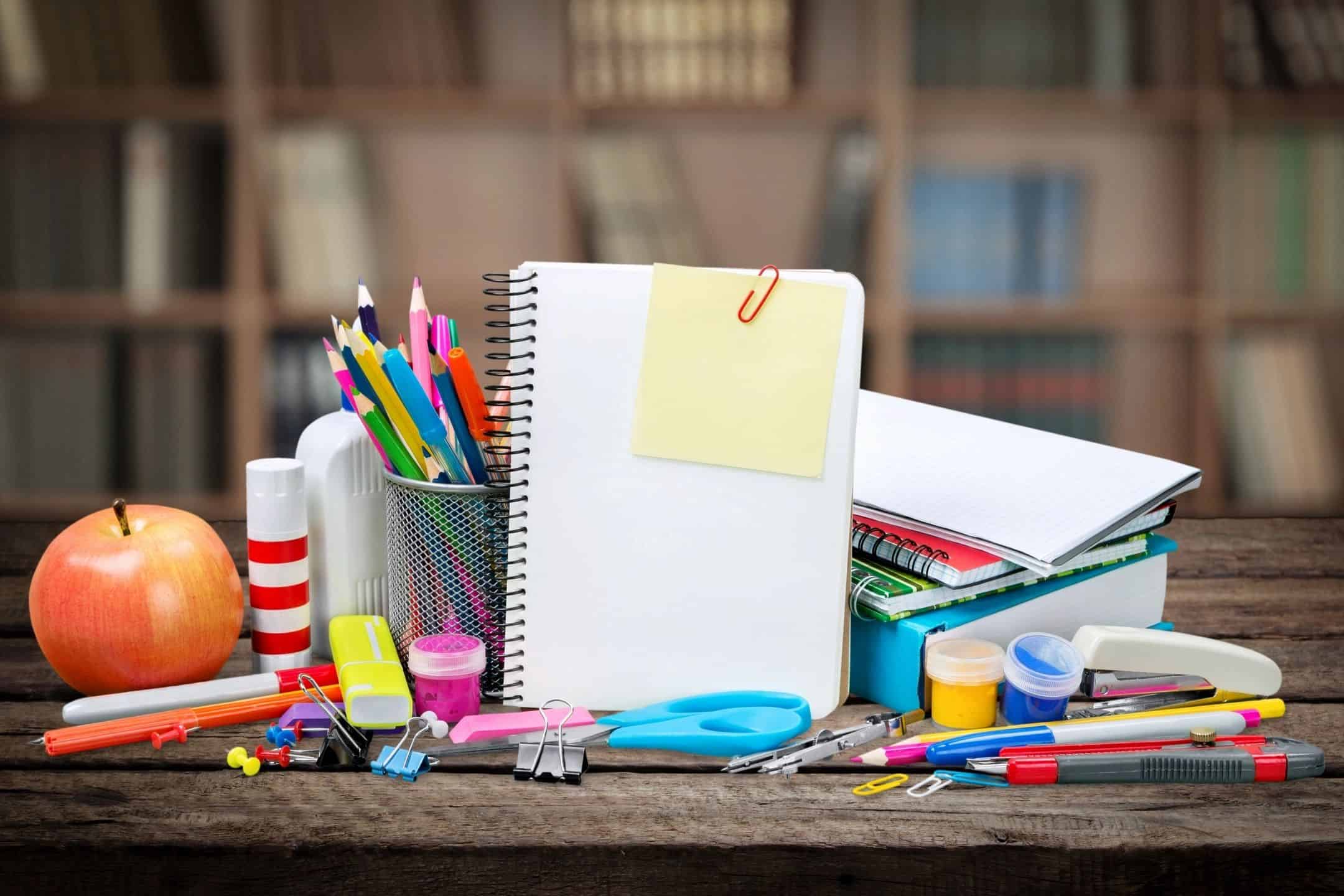Guest Blog post by Sarah Van Meter, LCSW
It is that time of year again – back to school. The smell of crayons and colored pencils fills the air. Brightly colored backpacks and lunch boxes line the aisles of stores. And you can’t watch TV without seeing back to school commercials. For some people, this is a time of year to celebrate. Kids that haven’t seen their friends all summer are excited to finally see them in the hallways. For other people, this time of year can be filled with dread and back to school anxiety.
Any change, even the ones we look forward to, can create anxiety. This is no different for your child. As a child and adolescent therapist, many of my conversations at this time of year revolve around returning to school. At home, as a mother, I watch my own daughters face their worries. Will their friends be in their class? Will their teacher be nice? What does their new classroom look like?
To add to the typical stressors children face with returning to school, this year adds an additional layer. Many schools are having to adjust their structure to follow CDC or health department recommendations. All of these changes can be scary, overwhelming, and create anxiety in children.
Symptoms of Anxiety in Children and Teens
Given all your child is facing, how can you tell if they are having normal back to school jitters or anxiety? The first thing you need to realize is that children do not present anxiety in the same manner that adults do. Often children will have physical “psychosomatic” complaints. (This does not mean they make it up!) While psychosomatic symptoms are more common in younger children, they can be seen at any age. For example, whenever my oldest is super anxious that’s when the stomachache and headache start. The minute her anxiety goes away so does the headache and stomachache.
When a child is anxious, their behavior can come across as angry, irritable, or defiant. You have to remember that children do not think in the same way adults do. Their brains have not developed the same pathways to explain to others that they are worried that the mean kid might be in their class. Instead, they may snap, yell, cry or refuse to do something.
I have witnessed many times on the first day of school children refusing to get on the bus or out of the car. This is likely because the child is anxious or fearful about going into the school. Another sign that your child is anxious is that they suddenly start struggling with sleep. It may be harder for them to fall asleep or stay asleep. They may start sneaking into other peoples’ beds or wanting extra reassurance at bedtime.
If your child is older, you may see them display over-planning. They want to know where their class is, if the teacher letter came, if the school supplies have been purchased, or even what their first day of school outfit is. It is likely that your child will want to revisit these topics again and again and again as the stress of this transition back to school fuels their anxiety.
Related Reading: Common Signs of Anxiety in Teens
Parents may also see their child’s ability to focus and attend take a downward plunge. It’s important to remember that if they are focused on whatever they are worried about, they are not hearing you tell them (possibly multiple times) to put their shoes away. Another sign that a child might be anxious is if they are suddenly very negative. You might hear, “School is stupid,” “I don’t learn anything,” “My teacher is dumb,” or “I don’t want to go.”
Now, the big caveat: If your child has one of these changes it does not mean they are anxious. However, if you notice multiple signs – they aren’t sleeping, are more irritable and defiant, they are checking their backpack daily, and telling you school stinks… well then there most likely is some anxiety taking place.
What are some Coping Skills for Back to School Anxiety?
If you’ve gotten to this point of this article, you are probably thinking, “That’s great information, Sarah, but what do I do if I think my kid is anxious?” No worries, here you go.
First and foremost, strongly consider reaching out to a local mental health agency or providers in mental health. Clinicians who work with youth are well equipped at helping children transition back to school. If you are feeling that you may not be at that place of contacting an agency or private practitioner, you can also reach out to your school and connect with the school social worker.
Often, a week or two before school starts teachers and social workers are in the building – and you can connect with them! One year my oldest was insanely anxious about starting in a new building after a rough previous year with bullying. I called the school a week before classes started and asked to leave a message with her teacher. Surprisingly, the teacher answered the phone. I brought the teacher up to speed on my daughter’s anxiety. We talked through ways to support her and help her transitional anxiety. Then, to my surprise again, the teacher offered to talk to my daughter. That one conversation made a world of difference for my daughter.
Another helpful thing for you to do with your child, if possible, is to attend any supply drop offs, orientations, school social events, or school tours. Remember that anxiety at the start of the school year stems from fear of the unknown. If children know what to expect it can calm back to school anxiety.
Helping kids get into “school mode” BEFORE school starts can be helpful in reducing transition anxiety, too. A week or two before school begins, reset bedtimes. Have kids get up on time and get ready as if they are going to school. This gets them in the habit, which makes getting out of the house easier on that first day and also helps your children know what to expect.
Related Reading: How to Teach Your Child to Cope with Anxiety
Additionally, allow your child to voice their concerns and worries. Make space for them to talk about their fears and hopes. Take care to not brush it off with “it will be fine.” Instead, work with them to problem solve the situations driving their fears. For example, my youngest this year worried that she wouldn’t be able to find her class. We discussed who she knew in the school who was a “helper” she could go to if she got lost.
Know that there are many breathing, grounding, and mindfulness exercises that you can view (and do!) with your child. Here is a simple one that I think is good.
And here is my last bit of advice on what to do about your child’s back to school anxiety: watch your own level of stress and anxiety. Children are highly tuned in their parent’s energy, and mirror neurons ensure that they will “feed off” what you are feeling. So if your child is anxious and you are, too, their anxiety will increase. It’s important that you remember to care for yourself so you can care for your child.
If you are in northern Illinois and feel that therapy might help you and your child with coping skills for school anxiety, please contact us at Life Care Wellness.
Blog by Sarah Van Meter, LCSW
Sarah Van Meter specializes in working with at risk youth, youth in foster care, and those with complex trauma. However, her clients are of all ages – children as young as 5 through older adults. She utilizes Motivational Interviewing, Cognitive Behavioral Therapy (CBT), and Dialectic Behavioral Therapy (DBT). Sarah has completed training in Trauma Focused Cognitive Behavioral Therapy (TF-CBT), Somatic Experiencing (SE), Health Coaching, and Fostering and Adoptive Concerns. She also has advanced training in working with survivors of sexual assault, as well as Illinois Coalition Domestic Violence Professional certification. In addition to providing therapy, she sat on a subcommittee of the Long-Term Recovery Committee for the tornado that impacted Fairdale, Illinois, and currently sits on the Trauma Informed Committee for DeKalb County.




